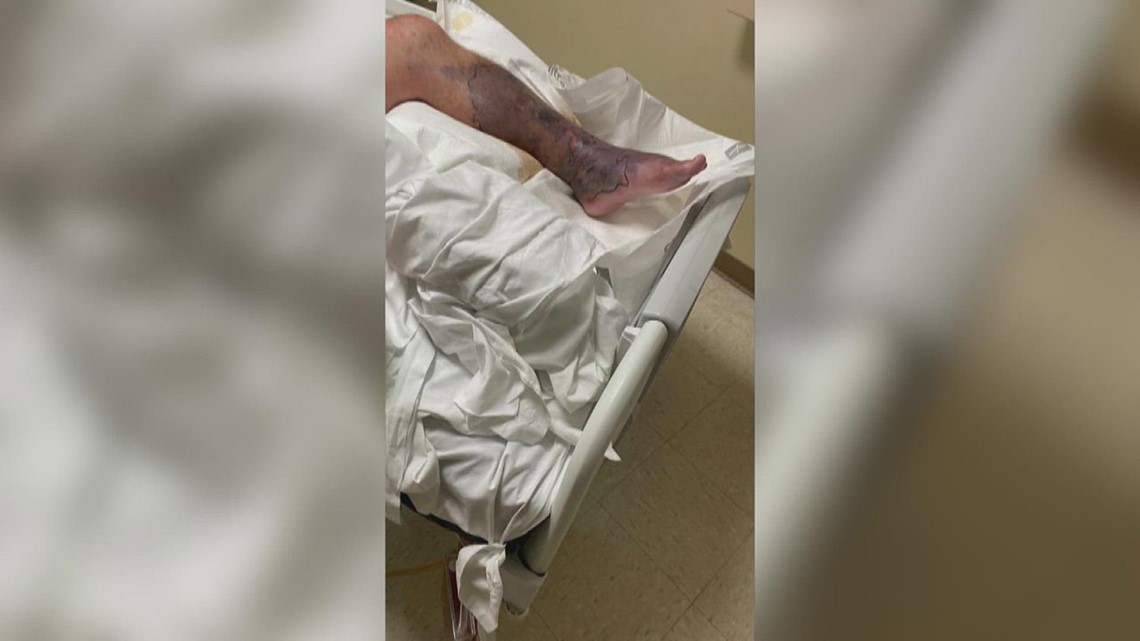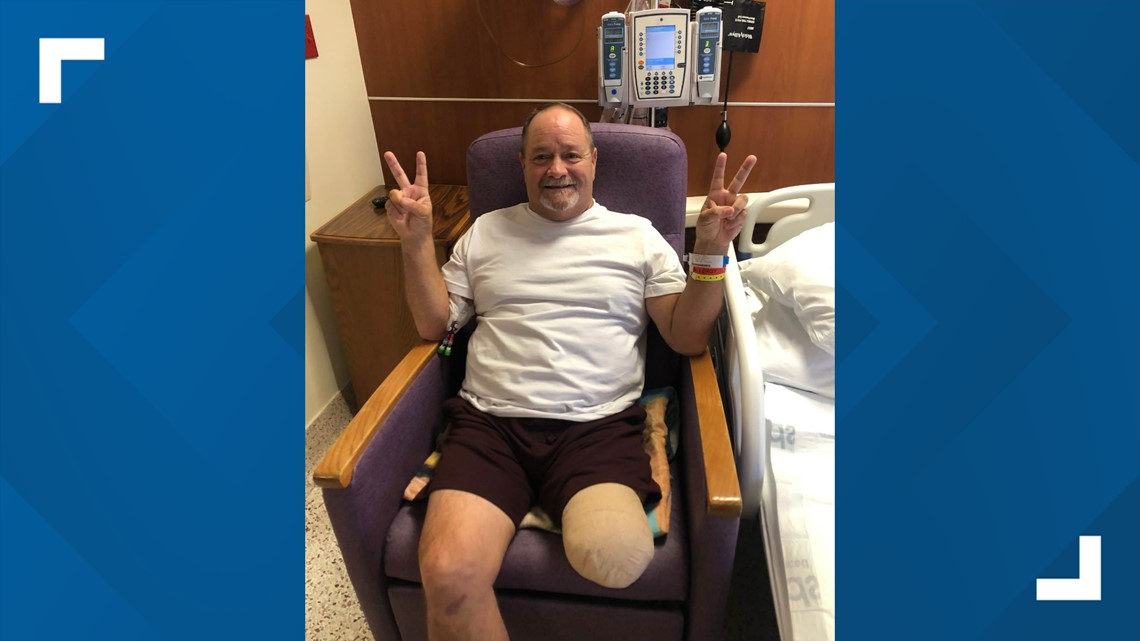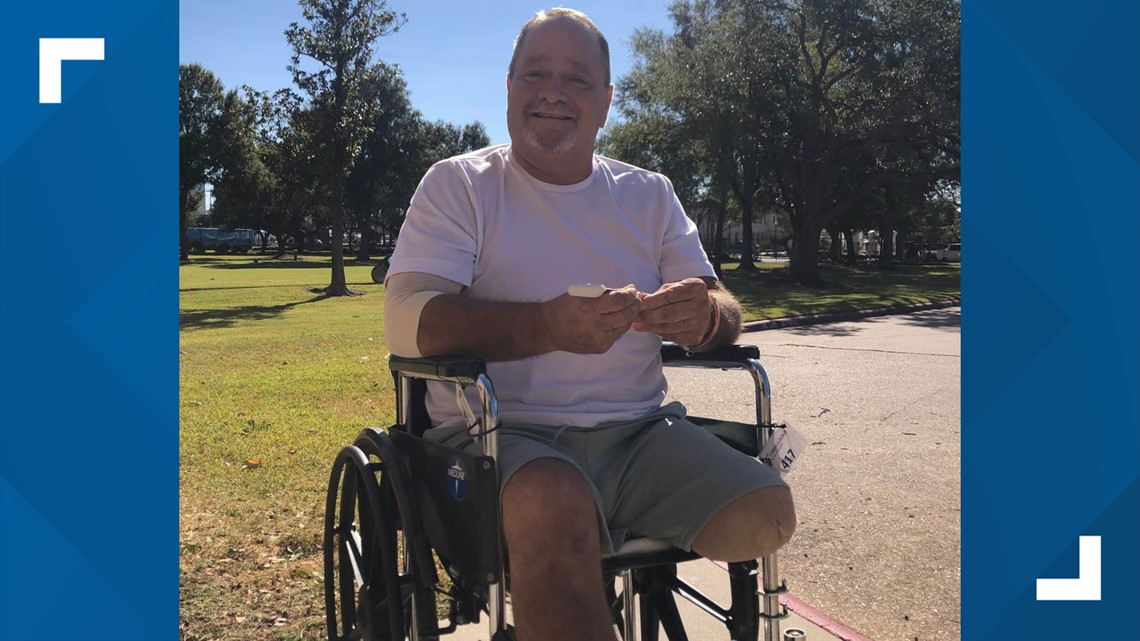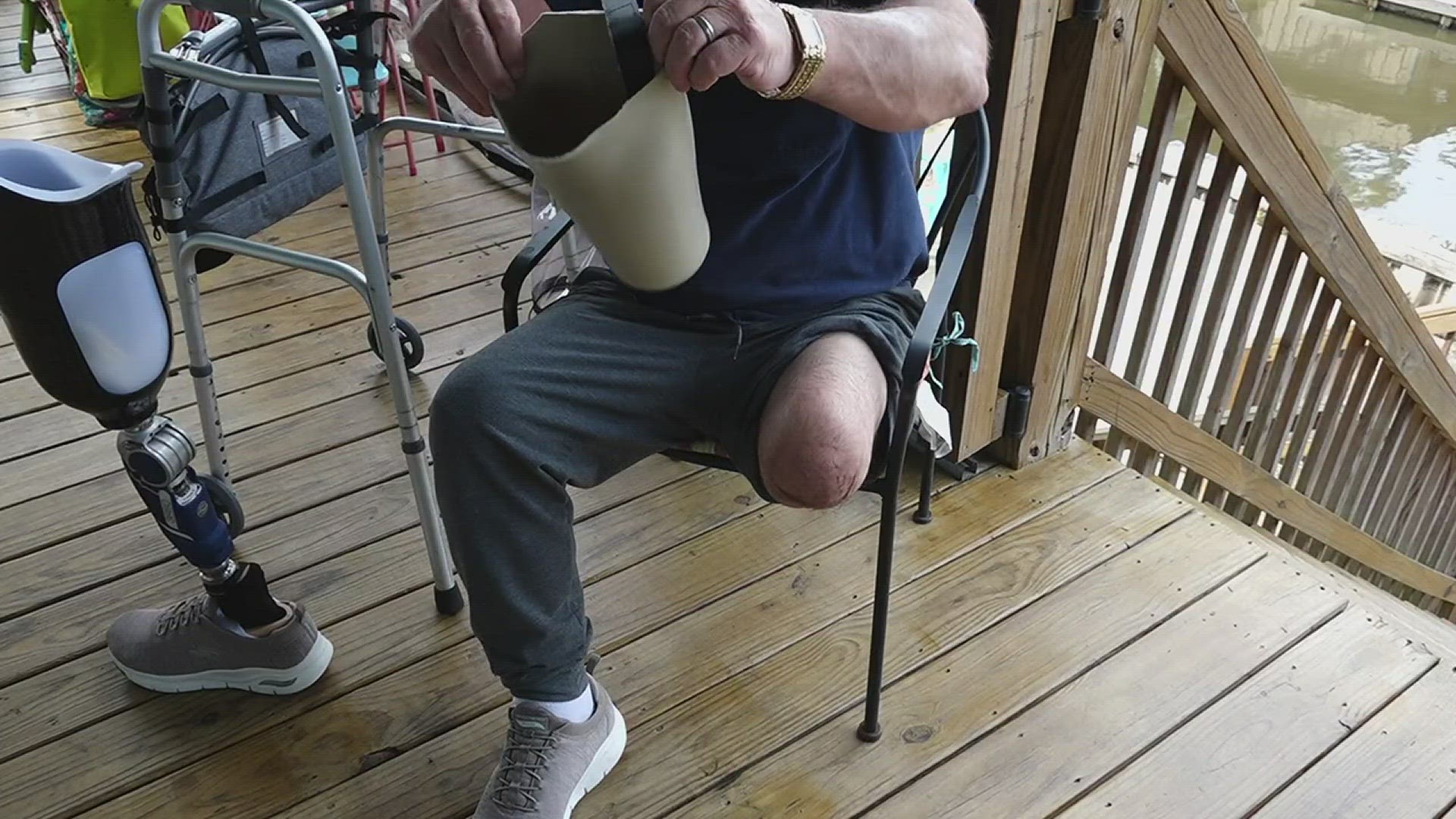BRIDGE CITY, Texas — After a flesh-eating bacteria forced a Bridge City man to get his leg amputated, he is sending a warning out to fellow Southeast Texans ahead of the warm weather season.
In September 2022, Carlton Abney was exposed to Vibrio Vulnificus, a flesh-eating bacteria. Abney was on a boat on Cow Bayou and had gotten into water that was only up to his knees, and as far as his family knew, did not have any cuts.
Still, the flesh-eating bacteria took its toll.
Now six months later, Abney is re-learning how to walk with his prosthetic leg.
He has to use an elevator to maneuver around his home.
"This is what I have to do to go to work every morning," Abney said.
Abney says once doctors discovered the cause of the infection, they told him he only had hours left to live if they didn't remove his leg.
"I said well, if that's the only thing that's gonna save my life, then lets cut it off," Abney said.
Abney was practically raised on the water, and never expected that it would almost cost him his life.
"I would have never expected it, didn't even know it existed, that's part of the problem," Abney said.
Abney is pushing for the state of Texas to implement testing and for scientists to do more monitoring of Southeast Texas waterways.
"The bacteria is out there. Everyone says it can only enter a cut, that's not true, it can enter a bruise, if you have varicose veins, if you've ever had cellulitis it can enter through that. If you've shaved," Abney said.
And Abney reassures, having a prosthetic leg requires some maintenance.
"Take your leg, set it off to the side and then this thing rolls up your leg, and this is what you have to keep clean," he said.
Abney is living proof and a symbol that this can happen to anyone.
"It affects everyone around me, especially my wife," he said.
He warns others that a quick dip on a hot day, could change your life forever.
"It drains her, it drains me, it affects doing things with your children, your grandchildren, it changes your whole life," Abney said.
Abney chose to share his story with 12News, in hopes he could prevent this tragedy from happening to anyone else.
"People need to know if this stuff is bad, and if there's times when it's worse than others, and people need to know this, and every boat ramp needs to have a sign, you ignore it, you're entering at your own risk," Abney said.
While an open cut is the most common way to catch bacteria, it can also enter through things like a mosquito bite or if you've recently shaved.


RELATED: Bridge City man raising awareness after flesh-eating bacteria from Cow Bayou leads to leg amputation
Colton Abney, Carlton Abney's son, said the bacteria started to shut his father's body down within hours.
"It was within four hours,” Colton Abney previously told 12News. “It started turning black. It was just eating the skin away. I mean, it was the craziest thing."
Colton Abney stated it took doctors two days to realize what was wrong.
"He told us he had two hours to live, and we had to amputate the leg at the knee,” Colton Abney said. “And that was a 50/50 chance.”


This type of bacteria is not new to the Lone Star State, according to Dr. Ashwini Kucknoor who is a biology professor at Lamar University.
"It is very common in the Gulf of Mexico because of the warm temperatures, because of the warmer water temperature,” Dr. Ashwini Kucknoor previously told 12News. “And it is very common."
According to the Texas Department of State Health, across the state, an average of 33 people are infected annually. Because it is not a common occurrence, the bacteria is not monitored.
Dr. Kucknoor wants to change that. She leads the Texas Beach Watch program and tracks bacteria in nearby bodies of water.
The Lamar University professor applied for grant funding to add Vibrio testing to the list of bacteria they test for on Jefferson County beaches.
Doctors from Houston Methodist are rushing to make a vaccine but believe that it is going to take some time. They are hoping to develop a Vibrio vaccine by 2030.
Not much is known about the vaccine, including if it will be available to everyone or just those who may have been exposed.



